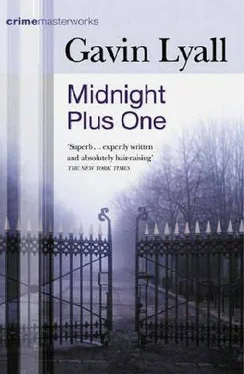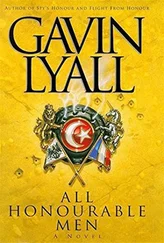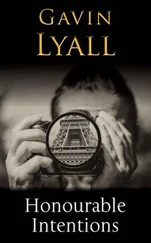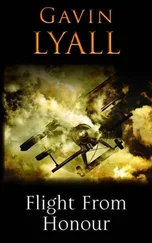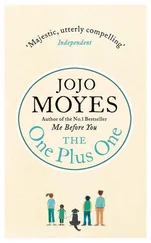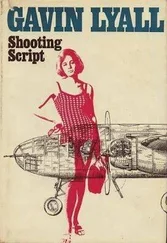Harvey said: 'And I don't likethat guy, either.'
I looked up quickly. An elderly party was just getting up from a table against the wall on the far side, carrying a newspaper with him. At the door he stopped to fiddle with his newspaper and, reckoning that made him invisible, threw a stare like a searchlight back at Maganhard.
He was a squat, solid man of at least sixty, and starting to develop a stoop. He had dark eyes and a long gingery moustache that was beginning to turn white. But his clothing was the thing that rocked me; up to his eyebrows he was the perfect chauffeur: shiny black leather leggings, black raincoat, black tie with a stiff collar. But on top of it was a vast hairy, orange tweed cap.
Probably, in his mind, that put him out of uniform and helped his invisibility. He was as invisible as an airport beacon.
He suddenly switched off the stare, fiddled with his newspaper again, and then went out with a determined military strut that, with him, had aged to the plodding of a dinosaur.
Harvey and I stared at each other. 'Well,' I said, 'he's no professional.'
Harvey said: 'If he knows Maganhard, he's trouble whatever he is.'
I nodded. 'Get them out of here. Get up to the next caféon the same side, so I'll know where to find you.' I stood up and tossed him a ten-franc note. 'And get Maganhard to get his glasses off and comb his hair differently.' I passed him the Journalopen at the photograph, and slid out of the café.
Anywhere but in Montreux the streets would have been full of Swiss dashing resolutely about making watches or money. Not here. Here was just about finishing its second cup of China tea and wondering whether to have one or two boiled eggs this morning. The streets were almost empty, and my man was easily in sight, fifty yards up on my left, heading deeper into town.
I crossed the road. There wasn't enough traffic to make it a problem crossing back if he dived up a side road, and he didn't look the type to think you could ever be trailed from the opposite side of the street. Twice he stopped, swung round, and gave the sergeant-major's stare at somebody behind him. It made him as conspicuous as an alligator in a bath, but it seemed to reassure him that the Black Hand Gang wasn't on his tail.
I slowed up to keep behind him, and we pressed on.
Montreux is a series of terraces around the end of the lake, with the main road and the railway criss-crossing at the middle level. We went through the shopping area and out of the centre towards the last row of big hotels on the lake front. It was staying a cold, grey morning and too early even for the old girls well wrapped up in rugs and Rolls Royces. I dropped farther back as the town began to thin out.
He gave one last sweep of the evil eye behind him, crossed to my side, and ducked into the side road above the Quai des Fleurs. We passed the Excelsior and then he turned into the Victoria.
I reached the door in several quick strides, a uniformed flunkey swung it for me before he noticed I was under seventy, and I nodded and headed across the lobby towards the lifts.
The whole place was furnished with a rich gloom that would have made an undertaker's parlour seem like a milk bar: heavy square columns covered in dark wood, brown-and-cream carpets, big rubber plants, and dark olive drapes trying to creep across the windows to keep out the light. I speeded up: in a hotel like that, the lifts work efficiently. They have to. Nobody is young enough to use the stairs.
I slid into the dark-panelled lift just behind the man I was following. The lift-boy flicked the doors shut, and asked me what floor. I bowed to the black raincoat, as a gesture of politeness to age, and he said: 'Sank.' I'd just got that figured out as the English for Cinque in time to say:'Quatre.'
In his suspicious mood, the old boy tried to catch my eye, but I wasn't having any. You never look the man you're trailing straight in the eye.
I bailed out at the fourth floor and took a few resolute steps to convince the lift-boy that I knew what I was doing, then doubled back as soon as the doors closed. I had half an eyeball poked around the next corner of the stairs by the time the lift stopped again. The black raincoat stomped past the top, and I tiptoed on up.
The corridor was long, tall, and plastered with shiny cream paint that had darkened to a smoky orange. He went about twenty yards down and stopped at a door on the left. I ducked back a step down the stairs: I'd seen him in action enough by now to know that he was going to swing round and stare down the corridor before he opened the door.
I waited twenty seconds, then walked after him. The room was number 510, and there was nobody else in the corridor. I rapped on the door.
After a pause a voice quavered: 'Who's that?'
I hooted:'Service, monsieur,' in cheerful, confident tones.
There was another pause. Then the door opened six inches and the gingery moustache peered out suspiciously.
I rammed griflet's little Walther PPK against the black tie at his neck and marched in behind it.
It was a long room, with big windows on to a balcony over the lake. If the windows had been opened in the last six months, it hadn't caught on: the temperature was at steam-bath level. That apart, it had a dark-red carpet, a load of furniture that looked too valuable to belong to the hotel -and another man.
I kicked the door shut and leant on it. The man in the raincoat took a couple more steps backwards and put up a hand to straighten his tie. I waved the gun towards the second man, in a chair beside the fire.
He said calmly: 'All right, Sergeant, don't do anything hasty.' He looked at me. 'And who are you, sir?'
I said: 'Somebody who scares easily,' and then gave him a second look.
He was old – so old that you didn't even think of an age when you looked at him. His face was long and withered to a dry mask ending in a ruin of sagging flesh under his chin. He had a big nose with a big white moustache under it, stiff with the brittle stiffness of a dead plant clinging to the cracks in a crumbling wall. His ears were decayed white leaves and his scalp a few forgotten strands of white hair. The whole face looked as if it had been six months in a dry tomb – except for his eyes. They were damp blobs so pale that they looked almost blind, and it must have cost half his energy to keep the hoods of his eyelids from flopping closed.
I had the creepy feeling that if I breathed on that face it would fall to dust, leaving the white skull underneath.
He was wrapped in a gold-and-black dressing-gown, with an invalid table shunted in over his knees, carrying a coffee pot, a cup, and a bunch of papers.
He opened his mouth slowly, and his voice came out as a dry death-rattle, but it still had a crispness that expected a fast answer. 'If you've come to kill me, you won't get away with it – will he, Sergeant?'
The man in the raincoat said: 'No, sir, he won't get away with it.' There was a rhythm, rather than an accent, to his voice that I couldn't identify because it seemed so much out of place. Then I had it: Welsh.
'You see?' the old man said. 'You won't get away with it.'
I got the point: I wouldn't get away with it. I leered at him. 'Maybe I didn't come to kill you.'
'You've got a pistol,' the old boy pointed out. 'Even if it's only a Walther PPK – a pop-gun. Still, it's the man behind the gun that counts – isn't it, Sergeant?'
The Sergeant said smartly: 'Yessir. That is what counts.'
'You see?' the man by the fire said. 'It's the man that counts.'
I was getting that floating feeling that comes with an influenza fever or trying to understand tax laws. I groped around for a chair. 'All right,' I said, 'let's just take it that I can count.'
Читать дальше
